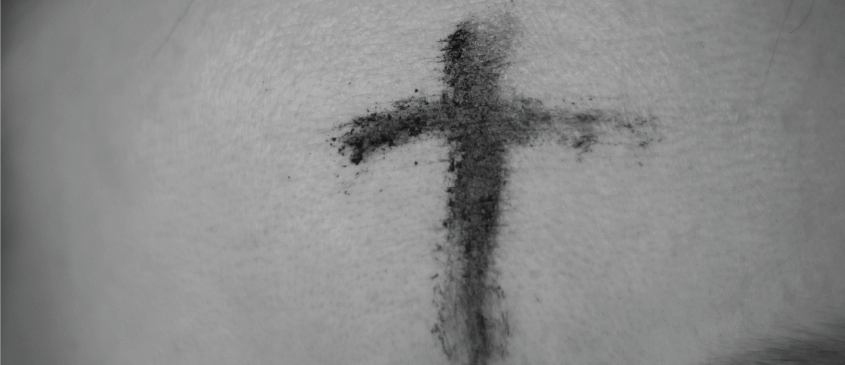Best Lent Ever…For Your Spouse!

While lots of people make resolutions for the New Year, most of these optimistic beginnings fizzle out before the end of January. Thankfully, Lent gives we Christians another, and a better, chance of success.
One year, about two decades ago, a close friend of ours shared with us how she decided to give up blame for Lent. She described it as an unpleasant habit she had developed, that was wounding those she loved and making herself miserable. She recognised that her blaming was rooted in her own insecurity; in her need to magnify her own worthiness by pointing out others’ shortcomings.
Lent presented itself and she decided to take the plunge and change the destructive behaviour. In their family’s Ash Wednesday prayer, she committed it to paper and then burned it as was their custom. These ashes were kept throughout Lent as a reminder of their commitments, and often ended up as crosses on their foreheads after family prayer.
As she recounts the story: “In the first week I failed multiple times. But the ashes at home reminded me to recommit and to keep bringing it to prayer. The second week was better, but the real breakthrough came when I adopted the blame-blessing switch. Every time I felt a blame urge on my lips or rising up in my thoughts, I consciously chose to send a silent blessing to the person instead”.
Years later she still beams when she reflects “The result was phenomenal. It not only loosened my attachment to blame, I also began to feel more joyful, more blessed. The simple practice of focussing on the worthiness in others stifled my impulse to blame. I also felt better about myself – more worthy and self-accepting.”
It was also transformative in her relationships and marriage. It lifted the sense of impending doom that her husband was living with and enabled him to relax more in her presence.
Change is Hard
Being able to grow and adapt like this is essential to human flourishing. It’s also crucial to a successful marriage – there is nothing that kills off hope faster in a struggling marriage than the belief that nothing will change.
But change is hard, especially the personal improvement kind of change. There are dozens of strategies for improving our ‘change-making’ outcomes from SMART (Specific, Measurable, Achievable, Realistic, Time-framed) Goals to Accountability Apps, etc.
Some strategies work better for certain personalities than others, and for different kinds of change. We put her success down to three important factors.
1: A Defined Period
The first was having a defined period of intense focus – in this case, 40 days. While the first few weeks are usually the most challenging in any change program, we don’t know that when we start. It just feels really hard, and we have no confidence that it will get easier, or how long it might take.
The open-ended nature of a New Year resolution thus works against success because it’s effectively a commitment with no end. And if we fail, our inclination is often to give up until next year or give up altogether.
Forty days is a brilliant time frame. It’s long enough for the attachment to a bad habit to dissipate, but not so long that it feels intimidating to start. We more readily give something difficult a red-hot go when we know if it is only for a manageable period.
2: Negative-Positive Switch
The second key to success was the ‘negative-positive switch’. It’s hard to just stop dead something that has become embedded in our lifestyle, even when we know it’s destructive. The sheer force of habit means that we must marshal enormous willpower to halt it and when we do, it creates a vacuum.
It helps enormously if we fill this vacuum with a better alternative, which is why smokers often have more success if they replace cigarettes with something like chewing gum.
By choosing to bless the person rather than blame, our friend didn’t have to silence or stop her thoughts, she simply had to redirect them. It’s a strategy most parents are familiar with when their babies ware howling over a shock or bump. ‘Shhing’ usually makes them cry louder but if we distract them with something interesting, they often simply forget the upset as their curiosity redirects their attention.
The same strategy worked a treat with our friend’s blame habit: by switching her focus to blessing, it redirected her feelings away from inferiority and unworthiness to gratitude. Moreover, as she began to feel like she was becoming a better, more constructive person, she started to feel empowered by the change she was making. Consequently, her feelings of inferiority and unworthiness were less prevalent. As she observed; “I just liked myself a whole lot better”.
3: Spiritual Resources
The third factor, of course, was the spiritual resources. By framing the self-improvement exercise as a spiritual discipline, she naturally grounded it in prayer and the Sacraments. In doing so she gained the added benefits and graces that came with this.
As she recalls: “In approaching it this way it was not just about making me happy, it was making me a better person, the person God made me to be; it was a step towards holiness.”
Best Lent Ever
So, here’s the challenge for all of us: What habit do we have that corrodes our relationships, makes us less loving, less generous, less holy? Criticism, negativity, selfishness, manipulation, grumpiness, aggression, temper, blame or something else?
Let’s all choose just one and then let’s get serious about giving that up for the remainder of this Lent. Displace that impulse with its positive counterpart and get some spiritual superpowers on your case with appeals to the saints and accessing the Sacraments.
We guarantee it will be your spouse’s best Lent ever!




